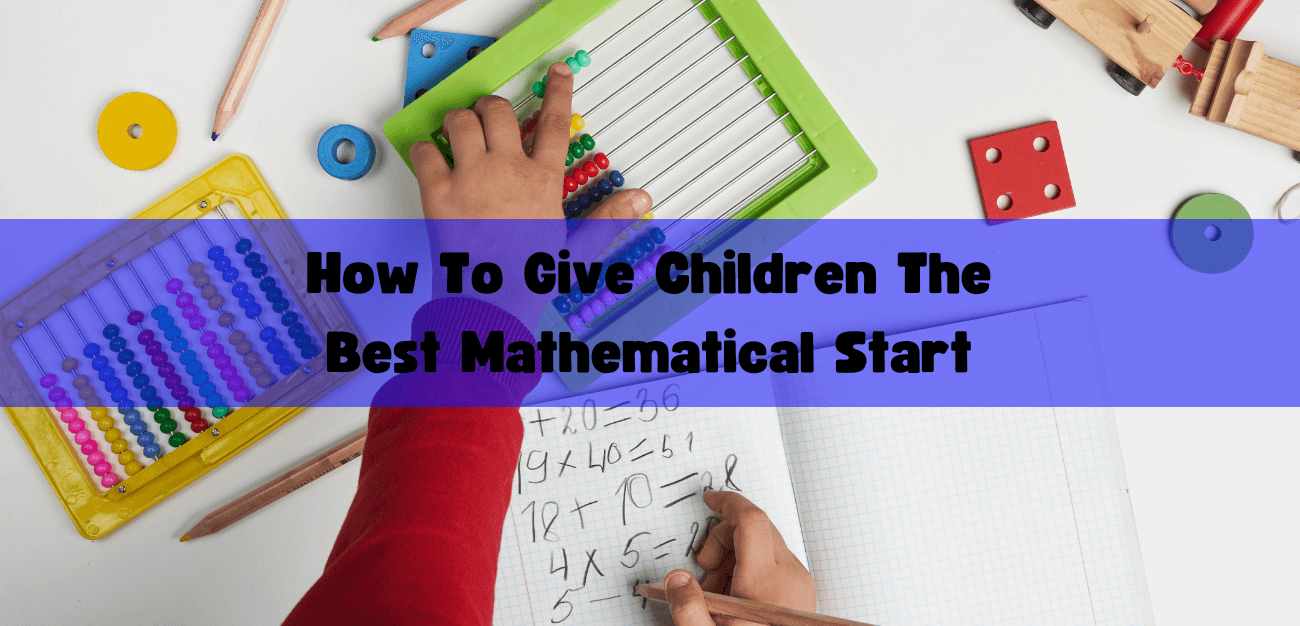One of the most important things you can do for your child is to give them a strong foundation in mathematics. In younger children, teaching them early on how to count, add, subtract, and divide while keeping it fun and entertaining will help set them up for success in future schooling and beyond. Giving older children the gift of a math tutor if they are struggling can also help set them up for a successful future.
It’s Not About Math Drills!
In order to give your child the mathematical start they deserve, it’s important that you first understand what that entails. Contrary to popular belief, it’s not all about doing endless math drills! Below are some essential tips that should provide parents/guardians with a strong foundation for any child.
Start with Counting: This one might seem obvious, but teaching children how to count is foundational for understanding basic mathematics. Help them learn their numbers 1-10 as well as counting by 2s, 5s, and 10s. Once they have mastered these, move on to addition and subtraction.
As with anything else in life, making learning fun will encourage children to stick with it! But, to make math fun, you may need to get creative. Try incorporating games or puzzles into your lessons or letting kids use technology gadgets. iPads or apps designed explicitly for elementary-level math practice can help to keep children entertained while learning. Many online resources offer ideas for hands-on activities that help make math concepts easy to understand. These tools can make learning more interactive and enjoyable while still providing a challenge.
Dropkick Math Academy is an online resource that offers an alternative to traditional math tutoring by making learning fun. We focus on the four pillars of math (number sense, operational sense, algebraic reasoning, proportional reasoning) while using game-based learning to boost students’ confidence in mathematics. By boosting a child’s confidence and making math more enjoyable to learn, you will give them one of the best mathematical starts they need for future success.
How Mathematicians Got Inspired
It is always interesting to learn how others got their start in life and what helped shape their future. Many mathematicians have confessed that their love for math did not come from school teaching but rather from exciting puzzles and games given to them by family members at a young age. We are not suggesting that education does not play a role in inspiration. It can all be part of children getting a deeper understanding and appreciation for math. It is important not to underestimate the role of interactions in the home and the role of games and puzzles for children’s mathematical development and inspiration.
We can see how inspiration can work in Sarah Flannery, a young woman who won the Europe Young Scientist of the Year award when she was 16. When asked what encouraged her in mathematics, she said that as a child, she was given puzzles to work on at home, which were important to her mathematics development alongside the math she was taught in the classroom.
Math Manipulatives
When children are beginning to learn a new concept in mathematics, manipulatives can be extremely helpful. These objects allow students to touch and feel blocks, sticks or beads and are extremely helpful when teaching many math concepts like addition and subtraction. They give children a physical representation of what is happening in mental equations, making it easier for them to understand and develops their conceptual understanding.
Math manipulatives intend not to make children forever dependent on them but to use them as they work through complex problems. However, they do have their purpose as students grow through elementary and high school when a new concept is introduced. Older students often find manipulatives helpful when articulating their thought processes when trying to explain a complex concept. When a new concept is introduced, the process of developing understanding strengthens by connecting concrete manipulatives to visual and symbolic representations. When the student is able to connect the different representations to symbolic forms, they should be able to stop using the manipulatives.
Encouraging Children
All children start off excited about learning mathematics, so parents/guardians must become a resource of encouragement. As adults, many mathematical ideas may seem obvious to us, but they can be fascinating for children. Take the time to marvel, encourage thinking, and challenge your child. This is one of the best ways to develop mathematical interest. By exploring patterns and ideas together, your child will develop a more profound passion for learning.
At Dropkick Math Academy, parents/guardians are encouraged to join the classes with their children as we believe that great success can be achieved by learning together! Active participation in a child’s education is crucial for their academic success and overall development. Education experts have found that parental involvement leads to higher grades, improved behaviour in school, and greater education aspirations for the child. Additionally, parents play a crucial role in instilling essential values like hard work, determination, and self-discipline.
Our tailored programs are specifically created for students and their parents/guardians to work together on understanding the building blocks of mathematics. After each class, parents are able to meet with their child’s teacher and get weekly feedback.
We understand that life can be busy, so if the parent/guardian cannot attend classes with their children, the end goal remains the same: giving children the tools they need to thrive in their education and beyond.
Making It Fun!
Many parents often ask me about the best books to help children learn math. While some great resources are filled with math questions, I believe that children should not be sitting down and given extra math work at home. Math learning at home should be fun and engaging. There are many ways to make math learning fun, such as playing games, cooking with measurement, or going on a math scavenger hunt. Children actively engaged in math learning are more likely to retain the information and enjoy math more. So next time you’re looking for a way to help your child with math, ditch the math homework and find a way to make math learning fun!
For parents who may be looking for math programs in Toronto and the surrounding areas, Dropkick Math Academy has classes taught by certified teachers who can offer differentiated approaches, making it accessible for all learning needs. So, why not use Dropkick Math to make math fun for kids and to support their learning? Get started today by learning more about our programs.



